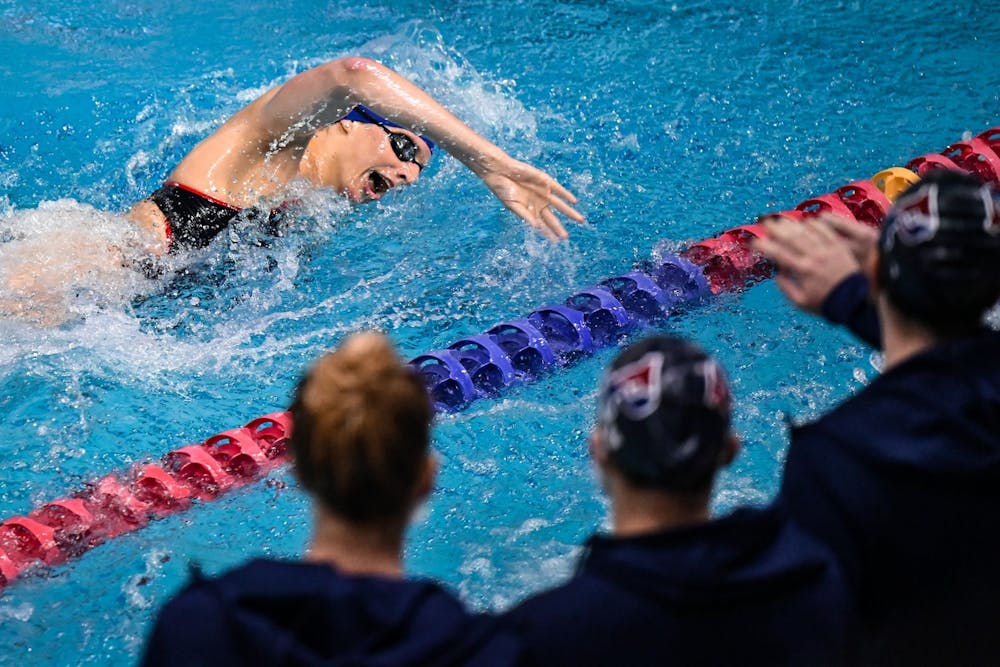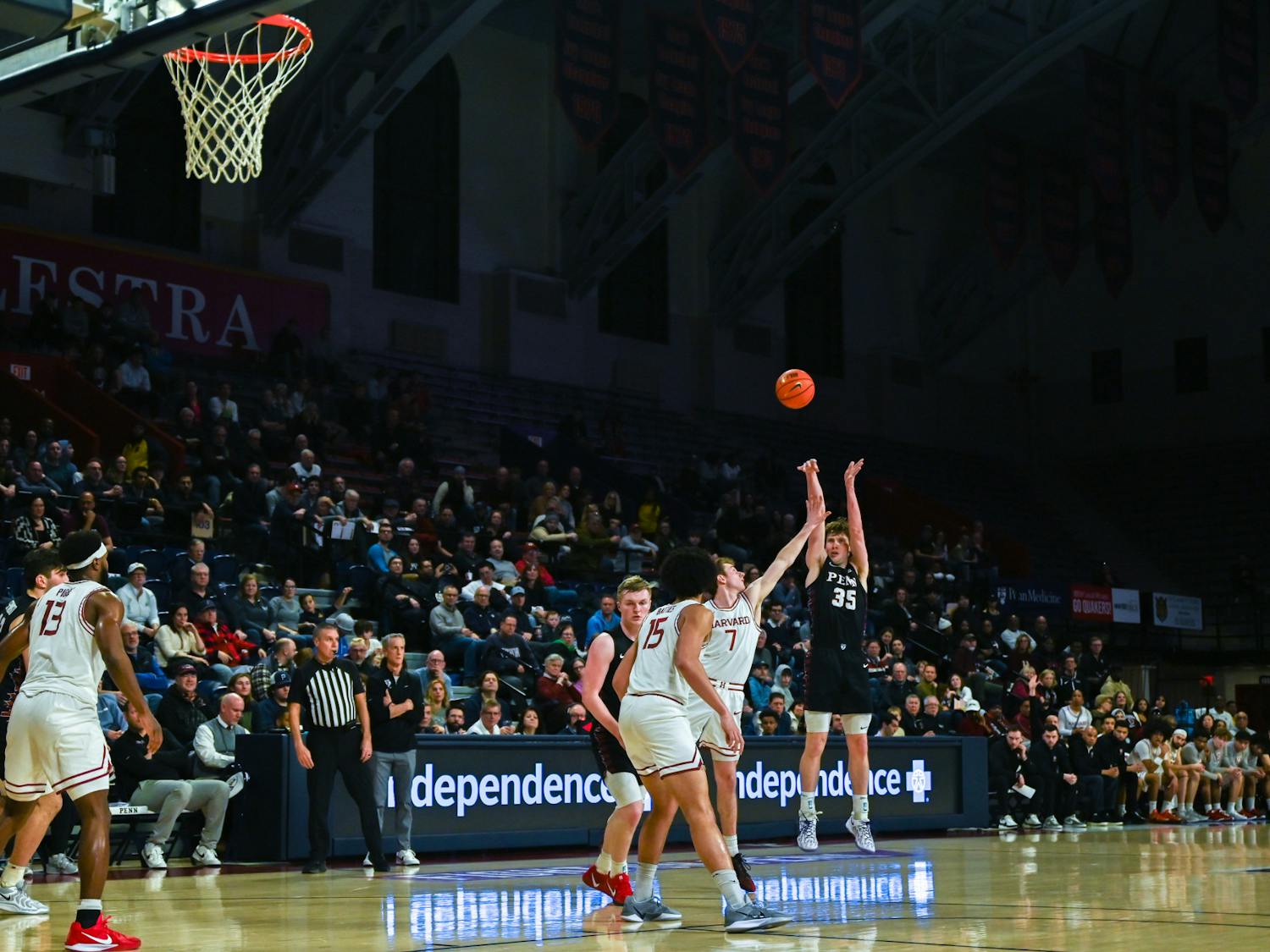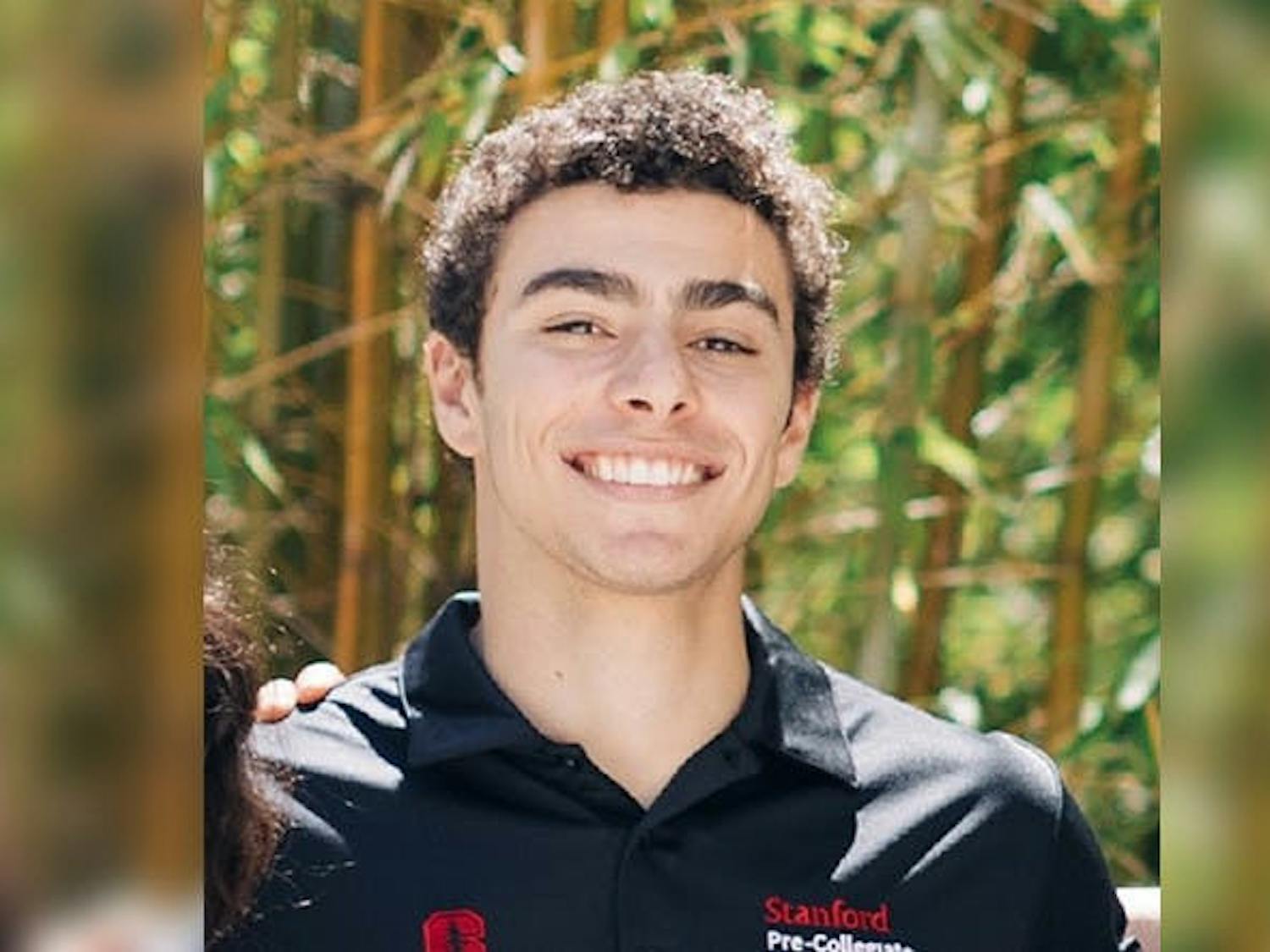On Saturday, Jan. 8, University of Pennsylvania swimmer Lia Thomas and her teammates on the Penn women’s swim team competed against Yale and Dartmouth in their last home meet of the season. Some teammates, however, threatened to boycott the meet. They did so over what they perceive as the unfairness of allowing Thomas to compete (and, specifically, the perceived unfairness of allowing Thomas to beat them) in the sport she loves, and at which she works hard to excel.
Thomas, who has been swimming since she was five years old, had an incredible season following a year-long break; she won events, broke records, and earned bids to the NCAA championships. Thomas did not succeed because she is transgender; she succeeded because of the hard work she has put in throughout her long swimming career, and because she is finally able to authentically be herself and race in a sport that she loves.
The backlash toward Thomas' success comes at a time when states across the country are continuing to launch attacks on trans rights — from passing bathroom bills to prohibiting gender-affirming (and life-saving) healthcare to excluding trans athletes from competition. These bills have forced teenage boys like Mack Beggs to compete in girls’ wrestling, where many of his competitors refused to wrestle with him because he is trans. These bills have effectively removed Beggs' — and countless other trans athletes’ — access to playing sports. The Olympics, regarded as the highest level of sport, recognizes and includes transgender athletes, yet dozens of states have introduced legislation that would ban transgender student athletes from participating in school sports. Thomas met the NCAA policy and was cleared to compete on the women’s team by the NCAA in fall 2020. As of fall 2021, Thomas had been on gender-affirming hormone therapy for two-and-a-half years.
This conversation about Thomas' inclusion, and the inclusion of all trans athletes, is not just about sports. It is “really about the broader conversation about the humanity of trans folks and whether or not they deserve to participate in all aspects of life in society, and that includes college sports, ” as Athlete Ally’s director of policy and programs Anne Lieberman said. This is further highlighted by the fact that almost 550 college athletes demanded the NCAA to protest laws that restrict trans participation in sports. This demand was sent in a letter to the NCAA in March 2021, demanding that “the association stop holding championships and events in states that have passed or are considering passing laws that effectively ban transgender women and girls ... from participating in youth and college sports aligned with their gender identity.”
Unequivocally, we, signatories of this column, support Thomas and all trans athletes who want to participate in sport and amplify the message of Anne Lieberman: “Trans athletes — Thomas, in particular — deserve love, support, care, access to be able to swim. And Thomas, like any other athlete, should be able to win and lose.” Protecting women’s sports means protecting all women.
The hysteria about transgender inclusion in sports that has been mounting over the past several years centers based on the perceived threat that trans athletes pose to sports. Specifically, the rhetoric and coverage surrounding Thomas, and athletes like her, makes bad faith assertions that transgender women are inherently cheaters, and that if a trans woman athlete wins, she is dominating women’s sports and taking away opportunities from fellow female athletes. In reality, out of the over 200,000 women that compete in the NCAA each year, it has been estimated that only 100 are trans. Nevertheless, these assertions have led to the introduction and enactment of legislation that employs stricter standards for the participation of transgender athletes than both the NCAA and the International Olympic Committee, often focusing on chromosomal makeup and sex organs. These discriminatory actions ignore the simple fact that transgender athletes have and continue to compete at the highest level of sports without incident. For example, the California Interscholastic Federation has allowed trans athletes to compete as the gender with which they identify for 8 years without protest.
Further, several professional sports leagues, the NCAA, and the International Olympic Committee, have trans-inclusive policies that have been in place for many years without major issue. In fact, the NCAA policy was set in 2010, and only requires trans women to complete “one calendar year of testosterone suppression treatment.” The International Olympic Committee first enacted its trans inclusion policy in 2004, requiring gender-affirming surgery for transgender athletes who wished to compete. In 2015, the surgery requirement was replaced with a requirement for a specific testosterone level for trans women. In 2021, the International Olympic Committee released a new framework on fairness, inclusion, and non-discrimination on the basis of gender identity and sex variations. Notably, 2021 also saw the first publicly out trans athletes compete, including the first trans athlete to win a gold medal. The committee stated that the Framework was “issued as part of the IOC’s commitment to respecting human rights (as expressed in Olympic Agenda (2020+5)) and as part of the action taken to foster gender equality and inclusion.” The Framework focuses on 10 principles: inclusion, the prevention of harm, non-discrimination, fairness, no presumption of advantage, an evidence-based approach, the primacy of health and bodily autonomy, a stakeholder-centered approach, the right to privacy, and periodic reviews. Chris, the first trans athlete to qualify for the United States Olympic team, praised the new framework for making it “clear that no athlete has an inherent advantage & moves away from eligibility criteria focused on testosterone levels, a practice that caused harmful & abusive practices such as invasive physical examinations & sex testing.” Canadian soccer player Quinn called the framework groundbreaking “in the way that it reflects what we know to be true . . . that athletes like me and my peers participate in sports without any inherent advantage, and that our humanity deserves to be respected.”
Regardless of the differences between testosterone suppression policies at high school, collegiate, and professional levels of play, the focus on testosterone in trans women is rooted in the assumption that being trans has some element of choice to it. Other biological advantages athletes may have — like height in basketball — routinely go unquestioned. In fact, these advantages are seen as very valuable and the athletes that possess them are promoted to more competitive and professional leagues rather than disqualified. In contrast, the choice to take performance-enhancing drugs is (rightfully) regarded as dishonorable, deceptive, and advantage-seeking. Despite the misunderstandings of those who accuse trans women of cheating and playing unfairly, being trans in sports is not a choice like the decision to take a performance-enhancing drug — athletes have as much say in their height as their gender identity. Focusing on supposed biological advantages that trans women possess but ignoring all other often-valued advantages athletes may possess both implies that being trans is a choice and demonstrates that the goal is not competitive fairness — rather, it is exclusion. Additionally, by focusing on “biology,” these attempts to exclude, disparage, and discriminate minimize the tremendous amount of work that athletes like Beggs and Thomas have put in to play their sports.
Lia Thomas belongs on the Penn women’s swim team, Lia Thomas belongs in sports, and all trans athletes belong in sports.
Signed,
Penn Law for Philly
Law Students for a Democratic Society (LSDS)
Penn Law Lambda
Trans Empowerment & Advocacy Project (TEA)
If/When/How: Lawyering for Reproductive Justice
American Constitution Society
International Human Rights Advocates
Penn Law National Lawyers Guild (NLG)
University of Pennsylvania Journal of Law and Social Change (JLASC)
Civil Rights Law Project
Entertainment Sports Law Society
Penn Law Boxing Club
Toll Scholars Classes of 2022, 2023, 2024
Latinx Law Students Association (LALSA)
Disabled & Allied Students Association (DALSA)
Penn Law Women’s Association (PLWA)









